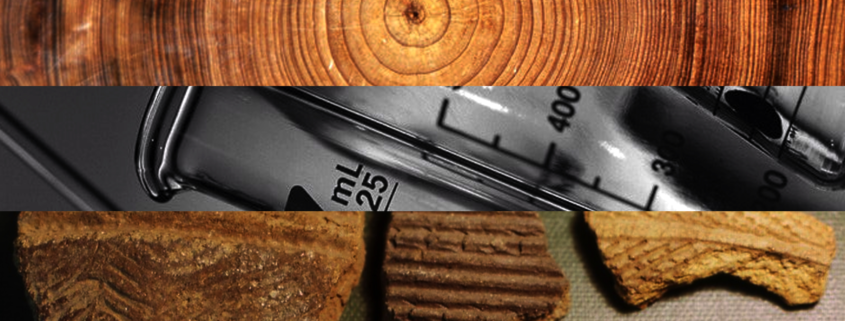ISOTOPIA: the potentials and limitations of isotope analyses in Archaeology
ISOTOPIA: the potentials and limitations of isotope analyses in Archaeology
Date: POSTPONED
Venue: Rijksuniversiteit Groningen
The first day of the event will be held at the GIA, Poststraat 6, 9712 ER Groningen.
The workshop on the second day will be held at the Centre for Isotope Research (CIO), Nijenborgh 6, 9747 AG Groningen.*
Registration: register by sending an email to isotopia.gia@gmail.com
Credits:
1 ECTS for RMA students attending the symposium and handing in a written report.
2 ECTS by participating on both days and writing a report.
Deadline for the report: 4 May 2020
Fee: The attendance fee for non-speakers: 10 euro for 1 day, 15 euro for 2, and can be paid at registration. (For ARCHON members, this fee will be reimbursed.)
Registration:
Impressive developments in archaeological science have provided archaeologists with the opportunity to study the past in new ways, and to push our interpretations beyond the limits of conventional methods. This development has been described as a “third scientific revolution”. The revolutionary nature of this development has already been attested in the large body of isotope studies and other biochemical applications in zooarchaeology that highlight previously unknown aspects of human-animal-environment relationships. Studies of the remnant fats in archaeological potteries have opened up new perspectives on human past culinary practices. Current advances in radiocarbon dating methods allow us to determine the age of organic material more accurately than ever before.
These new advances, however, also bring new questions and concerns regarding sample curation, excavation, data sharing and data legacy practices, the limited sources of archaeofaunal and human skeletal remains, the common misconceptions about isotope practices, misguided concerns about the results obtained from these studies, as well as the ethics involved in destructive sampling methods within the archaeological community.
Objectives
During this two-day event, we will bring researchers and postgraduate students in the Archaeological Sciences with different approaches and regional backgrounds together to discuss the current “state of the art ” of isotope analyses, especially isotope studies in zooarchaeology and human dietary and mobility patterns, residue analysis, and radiocarbon dating and their application to the study of the past. We aim to demonstrate the potential of the exciting developments of the third science revolution, balanced with critical notes regarding the pros and cons of this field.
The second day afternoon is reserved for a visit to the Centre for Isotope Research (CIO) organized by Dr. Margot Kuitems (CIO) and Dr. Michael Dee (CIO). During this workshop, there will be a tour of the facilities used for stable and radioisotope analysis, such as state-of-the-art MICADAS accelerator mass spectrometer (AMS). During this tour, there will be a demonstration of the principles of isotope research, wood cellulose and bone collagen extraction in which the participants will also learn about isotope data analysis and modelling. We will also provide an opportunity for hands-on practice of tooth enamel incremental sampling, and food crusts and residue extraction from ceramics.
Programme
Day 1 Venue: Groningen Institute of Archaeology
09:30-10:00 – Registration
10:00-10:10 – Opening Remarks by Daan Raemaekers, Professor of Archaeology of northwestern Europe; director of the Groningen Institute of Archaeology, the Netherlands
10:10-11:10 – Keynote Speaker Cheryl Makarewicz, Professor of zooarchaeology and stable isotope analysis, Christian-Albrechts Universitat zu Kiel, Germany
Session 1: Stable Isotopes in Zooarchaeology, Human Dietary and Mobility Patterns
11:10-11:30 – Wietske Prummel et al. (University of Groningen)
The elevating effect of salt marsh grazing on δ13C and δ15N values in aurochs, cattle and sheep from the north of the Netherlands; did it also exist in the polders that arose after the embankment of the salt marshes?
11:30-11:50 – Gene Shev (Leiden University)
Sea dogs and dinner dates: a multi-isotopic study of canid inter-island migration and diet in the pre-Columbian Caribbean
11:50-12:10 – Coffee Break
12:10-12:30 – Rosalind E. Gillis (University of Algarve)
(topic tba)
12:30-12:50 -Safoora Kamjan (University of Groningen)
The beginning of Neolithic in Europe in light of zooarchaeological and stable isotope analyses of cattle from Early Neolithic Džuljunica- Smărdeš, Bulgaria
12:50-14:00 – Lunch Break
14:00-14:20 – Gareth Davies (Vrije Universiteit Amsterdam)
Application of multiple isotope systems in mobility studies
14:20-14:40 – Lisette Kootker (Vrije Universiteit Amsterdam)
Strontium isotope research in the Netherlands: recent developments and future prospects.
14:40-15:00 – Michelle Alexander (University of York)
Using isotopes in Historic Meditteranen contexts: opportunities and issues.
15:00-15:20 – IJk van Hattum (University of Ghent)
A palaeopathological and isotopic approach to dietary changes in medieval Holland.
15:20- 15:50- Discussion
15:50-16:10 – Coffee Break
Session 2: Residue analysis
16:10-16:30 – Özge Demirci (University of Groningen)
Processing of aquatic food resources in early pottery in the NW Europe – Evidence from lipid residue analysis of Swifterbant pottery in the Netherlands
16:30-16:50 – Manon Bondetti (University of York)
Investigating the function of early ceramic container and subsistence strategies in Russia, during the early Holocene, through lipid residue analysis
16:50-17:10 – Maria Roumpou (Harokopio University)
Pottery as a grave good in Mycenaean tombs: molecular analysis in ceramic vessels from Ayios Vasilios, Lakonia
Day 2 Venue: Centre for Isotope Research
09:00-09:30 – Registration
09:30-09:40 – Welcome to Day 2 by Michael Dee
Session 3: Radiocarbon Dating
09:40-10:00 – Michael Dee (University of Groningen)
The Principles and Practice of Radiocarbon Dating
10:20-10:40 – Margot Kuitems (University of Groningen)
Cutting-Edge Applications in Radiocarbon Dating
10:40-11:00 – Speaker 3 (TBA)
11:00-11:20 – Coffee Break
11:20-12:20 – Discussion (Participants will be able to ask questions and discuss problems that they face in their own research, such as interpreting and modelling your radiocarbon dates, or understanding your isotope analysis results. The deadline to send your materials (graphs etc.) is 31 March. If you do so, please bring your own laptops.)
12:20-12:30- Closing remarks
12:30-13:30 – Lunch Break
Session 4: Hands-on Workshop
13:30-16:00 – Tour of CIO labs, demonstration of pre-treatment methods & hands-on practice
(There are a limited number of places in this workshop. While registering, make sure that you also register for this afternoon session. )


